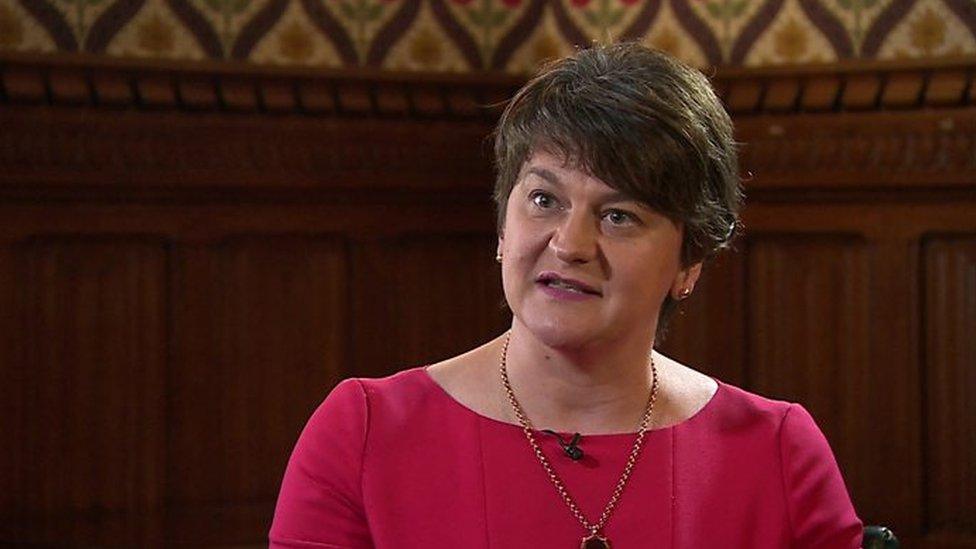New Brexit checks needed on GB-NI goods - Barnier
- Published
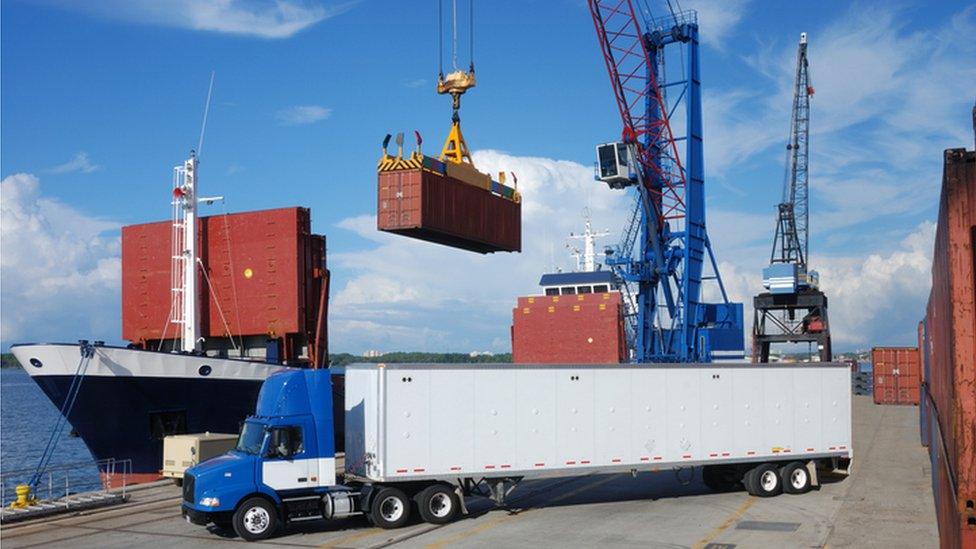
Animals and some food products may have to be checked at ports, as part of the EU plan
The EU's chief Brexit negotiator has described how a Brexit backstop would affect movement of goods between Great Britain and Northern Ireland.
The backstop will apply if the Irish border cannot be kept frictionless in the context of a wider deal.
Michel Barnier said animals and some food products would have to be checked at ports.
However he said other products could be dealt with by scanning barcodes on lorries or shipping containers.
There could also be "market surveillance" checks carried out in Northern Ireland by officials, like trading standards officers.
Mr Barnier said checks would be carried out "in the least intrusive way possible".
"I understand why such procedures are politically sensitive but... Brexit was not our choice, it is the choice of the UK," he said.
"Our proposal tries to help the UK in managing the negative fallout of Brexit in Northern Ireland in a way that respects the territorial integrity of the UK."
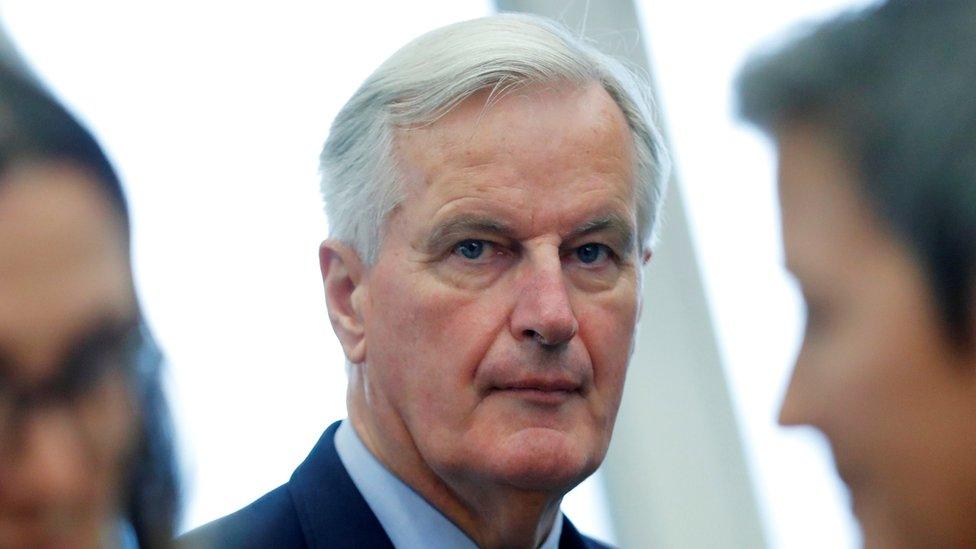
Mr Barnier talked about new customs and regulatory checks on goods travelling from GB to NI
The DUP have repeatedly warned they will not support any Brexit deal that could lead to new economic barriers between Northern Ireland and the rest of the UK.
Earlier this week the party leader Arlene Foster said: "The United Kingdom single market must be protected with no new borders between Northern Ireland and Great Britain being created.
"From day one this has been the DUP's only red line."
The backstop arrangement is effectively an insurance policy to avoid a hard border in Northern Ireland.
It is what will happen if a deal is agreed but the border cannot be kept as frictionless as it is now.
The UK is due to leave the EU on 29 March 2019.
- Published7 June 2018
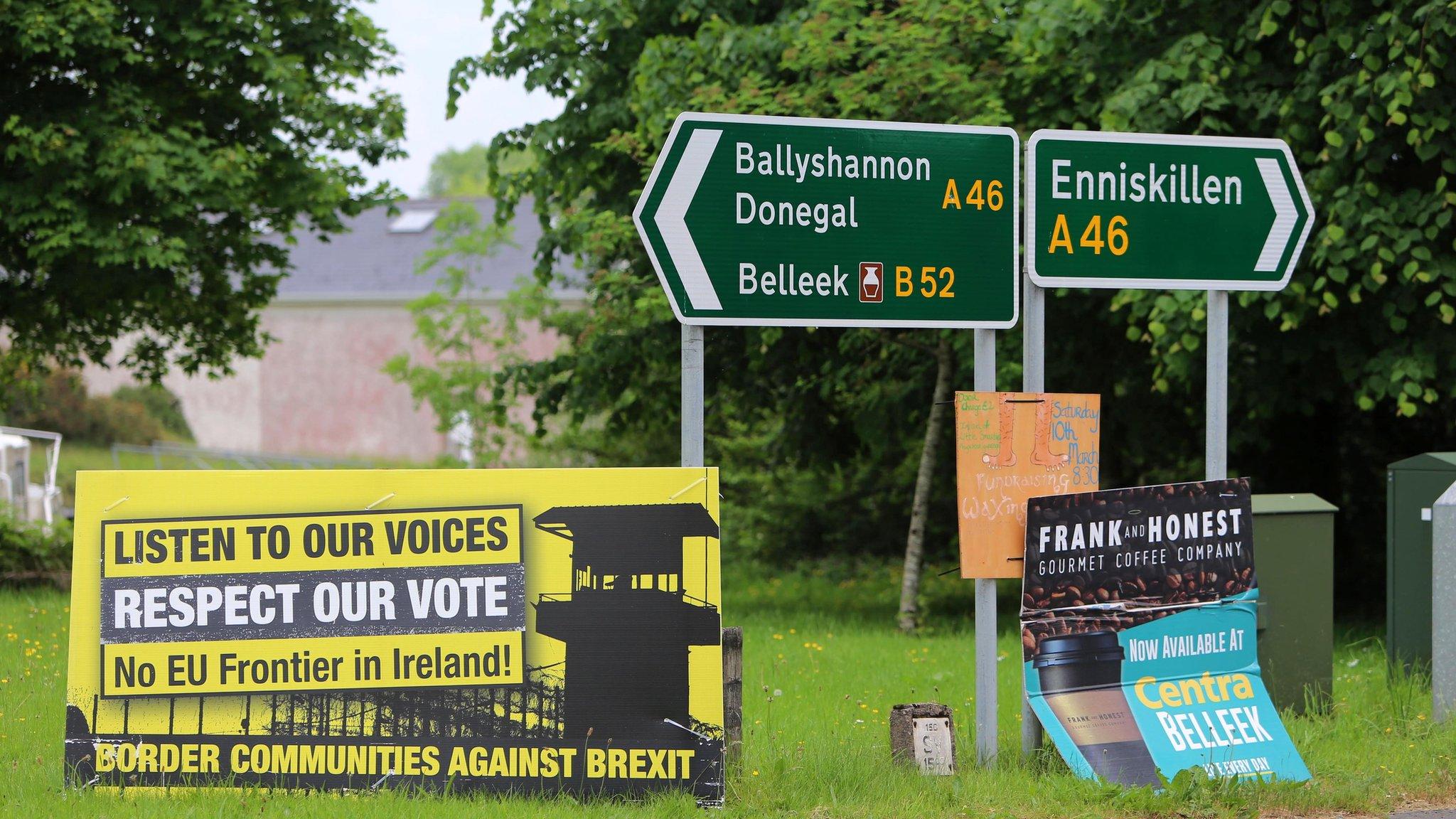
- Published29 March 2018
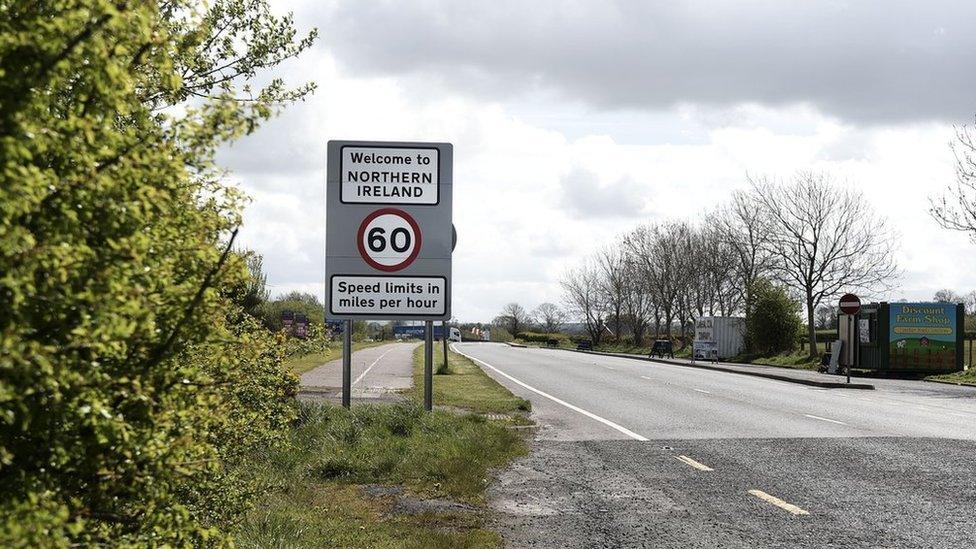
- Published5 October 2018
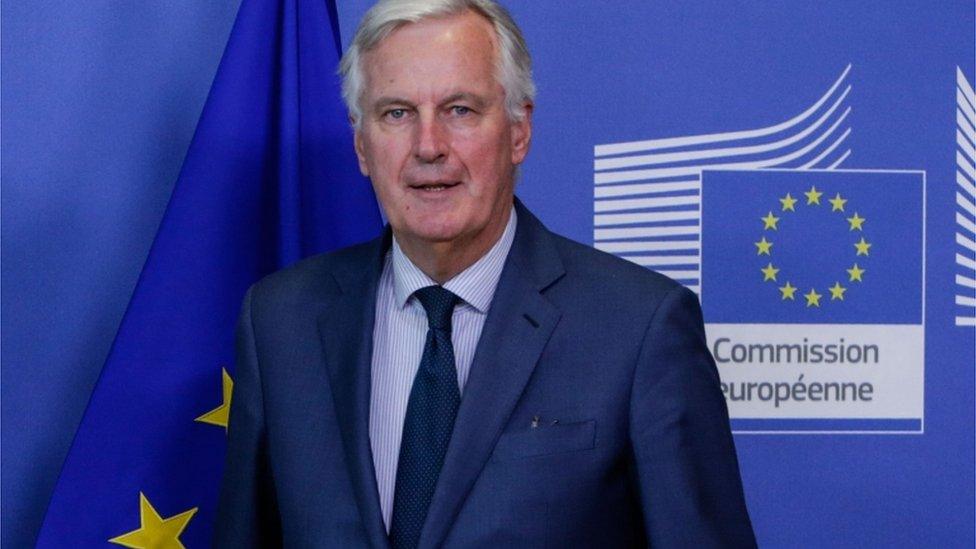
- Published2 October 2018
